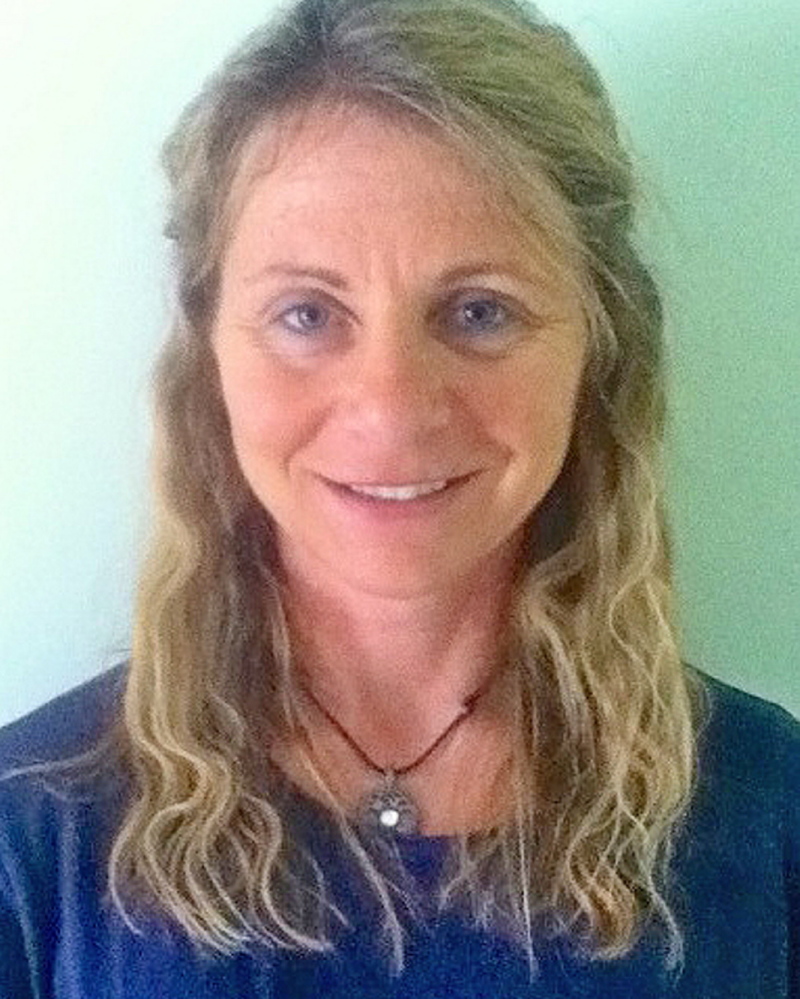Ever since laptops and iPads were introduced into Sarah Hardy’s eighth-grade class at Winslow Junior High School, the adventurous science teacher has had a nagging question about the best way to use the technology.
She’s traveling to Israel to help find the answer.
“What is the best way to be teaching with this?” Hardy said. “The technology is a substitution for pen and paper, and it should be more than that.”
Hardy, 45, has two decades of experience as a middle school teacher, which includes several educational trips to Costa Rica, New Orleans and Alabama. It’s that experience and her recent questions about technology in the classroom that have earned her a Fulbright Distinguished Award in Teaching grant to conduct research in Israel. Hardy was one of 43 teachers across the U.S. selected for the award from the more than 200 who applied.
“Part of what I’m looking for is to see what else we can do with them,” Hardy said. “We’re not teaching the same students we taught before. The digital generation is changing and teaching methods need to be looked at.”
At Winslow Junior High School, Hardy teaches eighth-grade science, which focuses on Earth science and astronomy. In Israel, she will be conducting research with two Israeli companies that develop wireless censors for iPads that help gather data and information for experiments. Hardy also hopes to see how Israel’s educational culture varies from our own.
“I think a lot of countries look at education in a different way than we do, with a different emphasis,” she said. “In Israel, getting a good education is the number one goal. It’s not to play sports or make money. Education is the conduit that takes you there.”
The four-month trip, which is set to take place from March to June 2015, won’t be the first time Hardy has traveled for a new educational — and possibly social — experience. She spent a week in Costa Rica and Skyped with her class about volcanoes, and she’s gone to New Orleans to study the effect Hurricane Katrina had on the insect population.
The excursions, Hardy said, keeps her enthusiastic during the school year.
“It’s what refuels me,” Hardy said, adding that she went to college at McGill University in Montreal to become a writer for National Geographic. “I can’t just go to work and punch a clock. I want to see the world and bring it back to the kids, let them know there’s much more out there.”
Established in 1946, the Fulbright Program has given roughly 318,000 students, teachers, scholars and other professionals the opportunity to study, teach and conduct research abroad in155 countries. Applicants for the teaching award can choose from 11 countries, including Chile, Finland, India, New Zealand, Singapore and the United Kingdom. Applicants are chosen based on teaching experience, motivation, adaptability, leadership, professionalism and the quality of the capstone project proposal they submitted.
Winslow school Principal Kevin Michaud said having a staff with so much energy and eagerness to explore is motivating to him and others.
“I think it’s inspiring not only to our students but to other teachers,” Michaud said. “When some of our own continue to advance and better themselves, we set a better examples for students to continue to learn.”
Michaud said it will be hard to replace Hardy in the short term next school year, but what she’ll bring back to students outweighs the short-term loss.
With a little less than a year until the trip, Hardy still is coming to terms with the realization that she will be traveling to Israel.
“I’m still fully grasping how big a deal it is and how prestigious it is,” she said. “I think I just need to let it sink in a little bit and say to myself, âHey, I deserve this.'”
Jesse Scardina — 861-9239 jscardina@centralmaine.com Twitter: @jessescardina
Send questions/comments to the editors.



Success. Please wait for the page to reload. If the page does not reload within 5 seconds, please refresh the page.
Enter your email and password to access comments.
Hi, to comment on stories you must . This profile is in addition to your subscription and website login.
Already have a commenting profile? .
Invalid username/password.
Please check your email to confirm and complete your registration.
Only subscribers are eligible to post comments. Please subscribe or login first for digital access. Here’s why.
Use the form below to reset your password. When you've submitted your account email, we will send an email with a reset code.